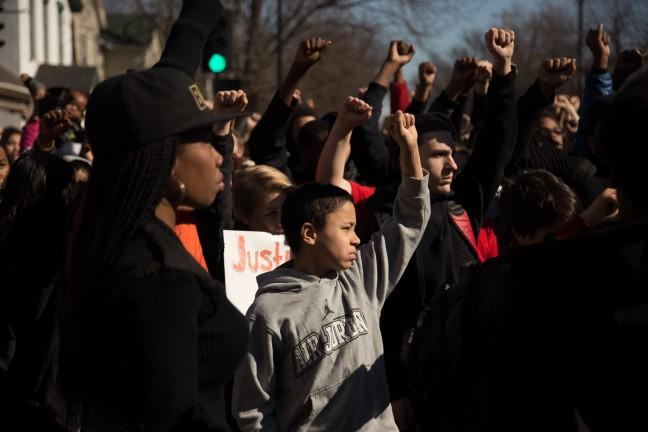Young people are often at the center of contemporary issues, and recent events have shown younger generations are not afraid to get politically involved.
After the Parkland high school shooting, many of the students at Marjory Stoneman Douglas High School spoke out in support of stronger gun control.
In fact, it was student survivors who helped to organize the March for Our Lives, which took place all over the world in March 2018, with the main event occurring in Washington, D.C. The movement comprised more than 800 protests across every state in the U.S. and on every continent except Antarctica.
This September, students led climate change protests all over the world. Much of the movement revolved around Greta Thunberg, a Swedish 16-year-old, who traveled to the U.S. via a zero-emissions sailboat to speak before Congress and meet with House Speaker Nancy Pelosi, D-Calif.
While these are extreme examples, young people’s political efficacy is evident on a local level as well.
Last Wednesday, Madison West High School security assistant Marlon Anderson was fired for using the n-word in the context of telling a student not to call him the racial slur.
District officials cited their zero-tolerance policy for staff using derogatory language as the reasoning behind Anderson’s termination, but critics said that context matters. Anderson was trying to escort a student outside the building, when the student called him the n-word about 15 times. In a Facebook post, Anderson explained he was responding to the student by saying do “not call me n—-!”
Friday, students at Madison West High School held a protest by walking out of school and marching to the district’s administrative building. The protest was led by Anderson’s son, Noah, who is president of the Black Student Union at Madison West. Students and teachers took part in the protest.
By Monday, Anderson was rehired, and placed on paid leave until the district figures out the best plan for him to transition back into his job at Madison West.
This situation proves how impactful students’ actions can be in major decisions. After Friday’s student-led protest, Gloria Reyes, Madison Metropolitan School District board president, issued a statement calling for the reversal of Anderson’s termination.
Doug Keillor, executive director of Madison Teachers, Inc., commented on the rarity of this type of reversal.
“It’s incredibly rare for a district to take this sort of action and then, within a week, rescind the action they took,” Keillor said.
In this case, there were potentially other factors that led to Anderson’s rehiring. Besides the protest, there were many reactions to Anderson’s termination on social media, including a tweet from musical artist Cher offering to pay for Anderson’s legal expenses if he decided to sue the school district.
In general, however, young people, specifically students, have a history of organizing major events and inciting change. Whether it’s through protests, direct contact with lawmakers, or other means, young people can and do use their voices to fight for causes they believe in.
This is significant because it shows the potential impact of future generations. While we may be at a time of political strife right now, there is hope for the future, in that young people can continue to advocate for important issues in order to incite change.
It is young people who have to live with long-term problems, and, as in the case of Anderson, it is often students who feel most passionate about protecting school staff. I encourage my peers, specifically students here at the University of Wisconsin, to aim for change by fighting for the issues they believe in — there’s no telling what kind of impact they could have.
Courtney Degen (cdegen@wisc.edu) is a junior majoring in political science and journalism.


